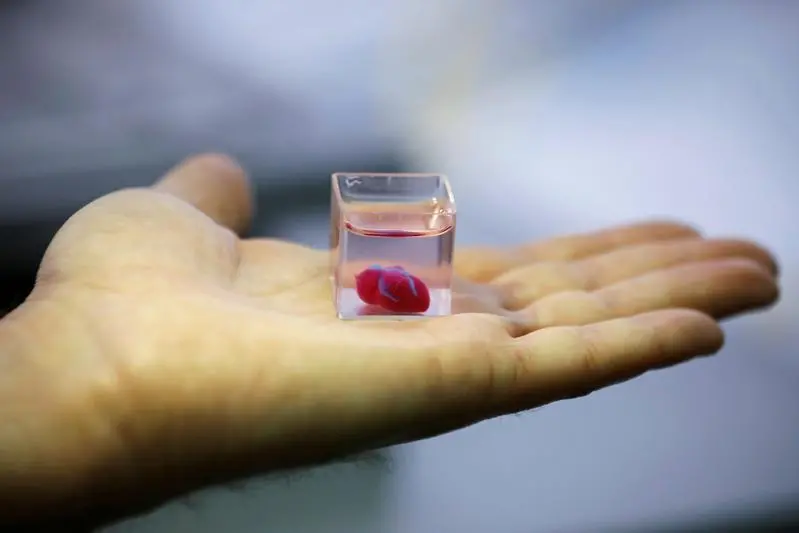PHOTO
LONDON - Silicon Valley is encroaching ever more onto Big Pharma’s turf. A computer programme developed by Alphabet’s Google unit has beaten radiologists in detecting breast cancer, showing that improvements in data crunching can potentially save patients’ lives and governments’ money. For drugmakers, the impact may be less benign.
Oncology is proving a fertile playground for computer nerds. Experts from Google Health and DeepMind, the internet giant’s artificial intelligence unit, trained a computer programnme to spot malignancy in thousands of mammograms, before testing it on some 28,000 scans from U.S. and UK patients. The system was able to identify cancers with a similar degree of accuracy to radiologists. It produced fewer false positives – in which patients are erroneously told they have cancer – as well as false negatives, according to a paper published in the journal Nature.
Improved screening might reduce the number of unnecessary treatments and save lives. And, even if artificial intelligence programmes are not much more efficient than some humans, as the results from the UK test suggest, they could still lower costs by reducing the need for second opinions. There are reasons to be cautious: Google’s programme is yet to run in clinical trials, and similar efforts have disappointed when used in the real world. It’s not yet proven that finding and treating more patients this way will actually improve survival rates.
Artificial intelligence could be a mixed blessing for drugmakers. Take the estimated $160 billion worldwide cancer market. Drugmakers are pouring billions of dollars into developing new treatments, enticed by the ability to charge high prices for medicine, such as new immunotherapy products which use the body’s defences to combat tumours. Yet more efficient screening might allow cancers to be caught earlier, perhaps reducing the need for drugs. McKinsey analysts reckon that every $1 spent on better screening in the United States could produce $4 in medical benefits, such as lower costs.
The new technology could also help drug companies develop better therapies – and charge more for them. Google’s engineers aspire to broaden their programme beyond screening into treatment planning, for example targeting specific kinds of tumours. Drugmakers already have plenty of historical data, and so can develop their own programmes or collaborate with tech groups. Pharma executives must prove the advent of artificial intelligence will lead to better treatment – not just less of it.
CONTEXT NEWS
- An artificial intelligence system developed by Alphabet’s Google unit proved as good as expert radiologists at detecting which women had breast cancer based on screening mammograms and also showed promise at reducing errors, researchers in the United States and Britain reported on Jan. 1.
- The study, published in the journal Nature, is the latest to show that artificial intelligence has the potential to improve the accuracy of screening for breast cancer, which affects one in eight women globally.
- The findings of the study, developed with Alphabet’s DeepMind AI unit, which merged with Google Health in September, represent a major advance in the potential for the early detection of breast cancer, Mozziyar Etemadi, one of its co-authors from Northwestern Medicine in Chicago, said.
- The study showed the AI programme could identify cancers with a similar degree of accuracy to expert radiologists, while reducing the number of false positive results by 5.7% in the U.S.-based group and by 1.2% in the British group.
- It also cut the number of false negatives, where tests are wrongly classified as normal, by 9.4% in the U.S. group, and by 2.7% in the British group.
(Editing by Neil Unmack and Karen Kwok) ((Christopher.G.Thompson@thomsonreuters.com; Reuters Messaging: Christopher.G.Thompson.thomsonreuters.com@reuters.net))





















